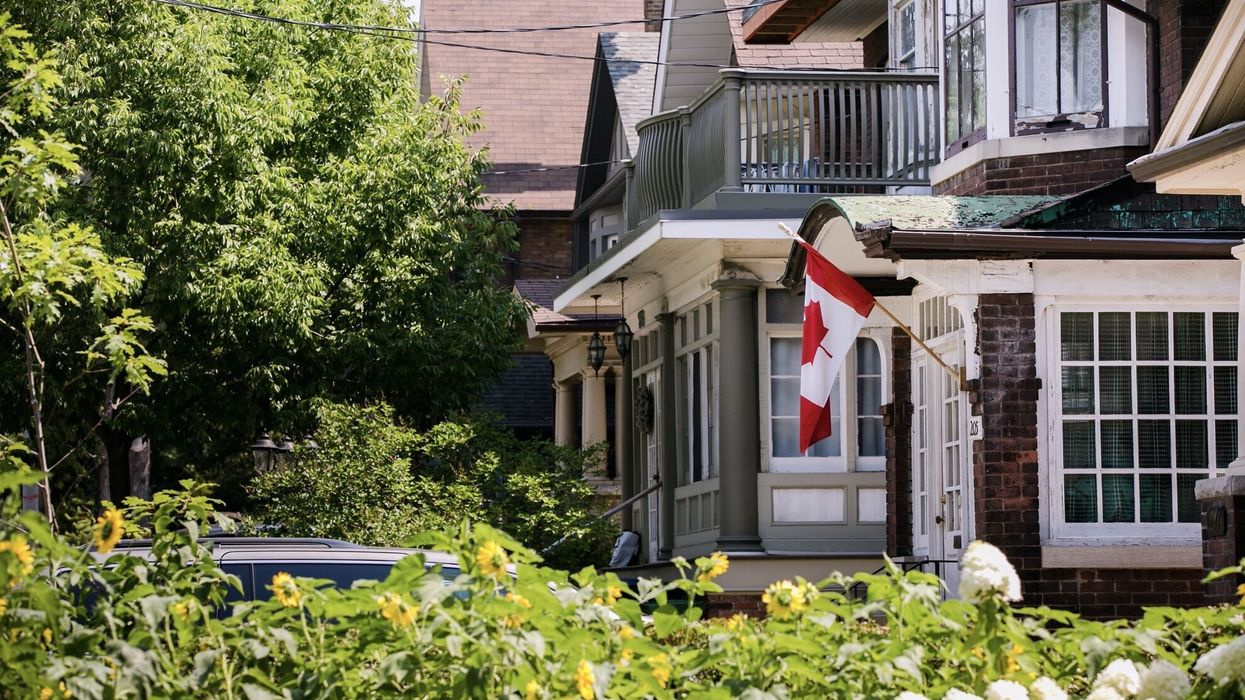To prepare the country for a solid economic recovery post-COVID-19, the Bank of Canada lowered its Overnight Lending Rate -- which consumer banks use to set their own mortgage and lines of credit rates -- to a record low of 0.25% during the onset of the pandemic.
The low interest rates, coupled with Canadians desiring more space amid lockdowns and stay-at-home orders, intensified housing demand, driving prices upward over the course of 2020-21, with national sales activity spiking 235% between April of last year and March 2021, pushing the average home price up by 44%, according to a new report from Zoocasa.
However, as lockdown measures have largely lifted across the country, the frenetic urgency to buy seen earlier this year appears to have eased, as national home sales continued to cool in July, falling for the fourth consecutive month as new inventory reached a record low. Subsequently, it appears as though some Canadian real estate sentiments have also changed.
To see what has changed amongst Canadians, Zoocasa surveyed over 1,400 respondents about post-lockdown preferences regarding desirable home characteristics, housing affordability, and the ability to work from home. The findings were compared to responses collected in February 2021 -- amid a record-breaking real estate market -- to gauge how feelings have changed from a time during lockdown measures to a time when they have loosened substantially.
READ: Household Mortgage Debt Just Rose By a Record Amount in Canada
Due to the rock-bottom interest rates, lenders have been able to offer homebuyers record-low mortgage rates, and Zoocasa says this "cheap" cost of borrowing has contributed to sales and price growth over the course of the pandemic.
According to the survey findings, Canadians say they are increasingly in disagreement that today’s low cost of borrowing makes it easier to buy a home. While 47% agree that low mortgage rates have improved home buyers' affordability (a slight decrease from February), 34.4% of respondents disagreed with that statement -- an increase of 12.1%.
However, Canadians overwhelmingly feel low mortgage interest rates are driving up the prices of homes. In fact, 80.5% indicated they agreed with that statement (up 32.8%). At the same time, 38.1% of respondents agree that low mortgage rates have impacted their desire to buy a property.
READ: “We Have Yet to See Peak Prices”: Can Canadian Homebuyers Keep Up?
Regarding affordability, Canadians largely feel that home prices in suburban areas and smaller towns have increased at "unsustainable levels," with a strong majority of 77.2% of respondents agreeing -- a 25.4% increase from when this question was put forward back in February.
When asked what the main areas of concern were when purchasing a home, respondents indicated affordability (78.2%), engaging in a bidding war (70.3%), and timing the market (51.9%) were the top issues.
And given that the national average home price reached $662,000 in July, up 15.6% year-over-year, prospective buyers need to have increasingly higher income levels to be competitive in the market. According to the survey, of those who indicated they're looking to buy a home (56%), 50% currently have a household income over $100,000. Of these, 20% are in an income bracket above $160,000, while 32% report an income below $100,000.
READ: Buyers Now Need at Least $1M to Buy a Detached Home in 97% of the GTA
As the economy continues to re-open and employers announce their post-lock down strategies, 7.1% fewer respondents reported they would continue to work from home following the end of COVID-19, at a total of 29.7%.
An additional 24.2% reported that they have a hybrid working arrangement -- a 6.4% increase. Meanwhile, the number of respondents currently working solely from the workspace remained unchanged from the February response.
But while many Canadians continue to work remotely, homes with office space continue to be in high demand -- albeit at a lesser rate than in February. Subsequently, a total of 43% of respondents stated that office space had become a more desirable home characteristic, a decrease of 15.9%.
On the other hand, 65.8% said outdoor space remains at the top of their home-buying lists -- though this also marks a 10.5% decline from February.
With the federal election just under a month away and housing affordability at the forefront, it'll be interesting to see how Canadians feel about the housing market in the months to come.





















